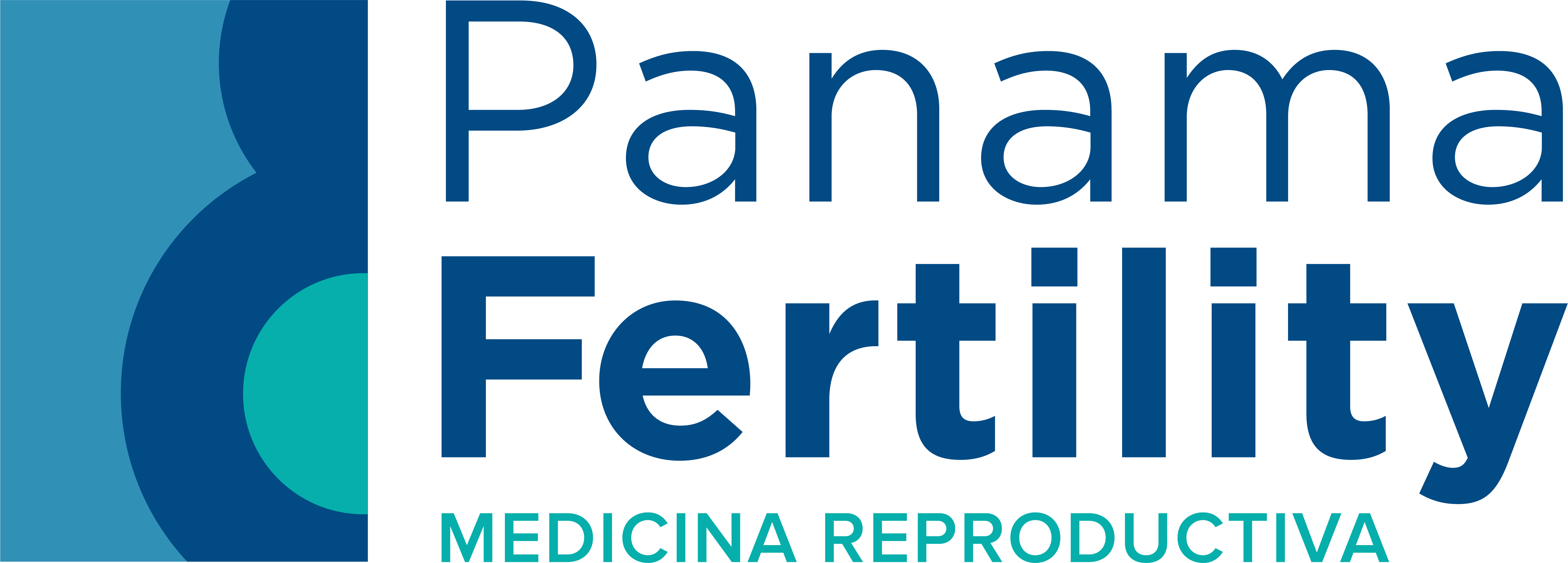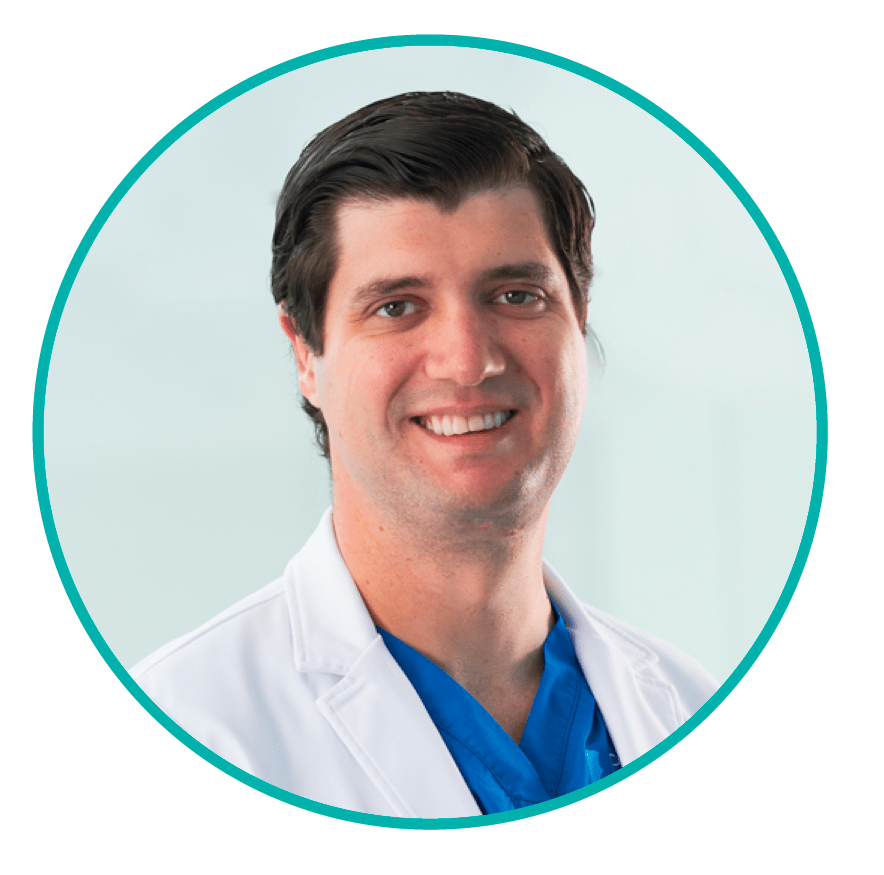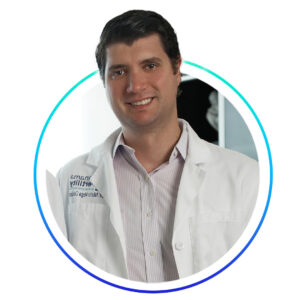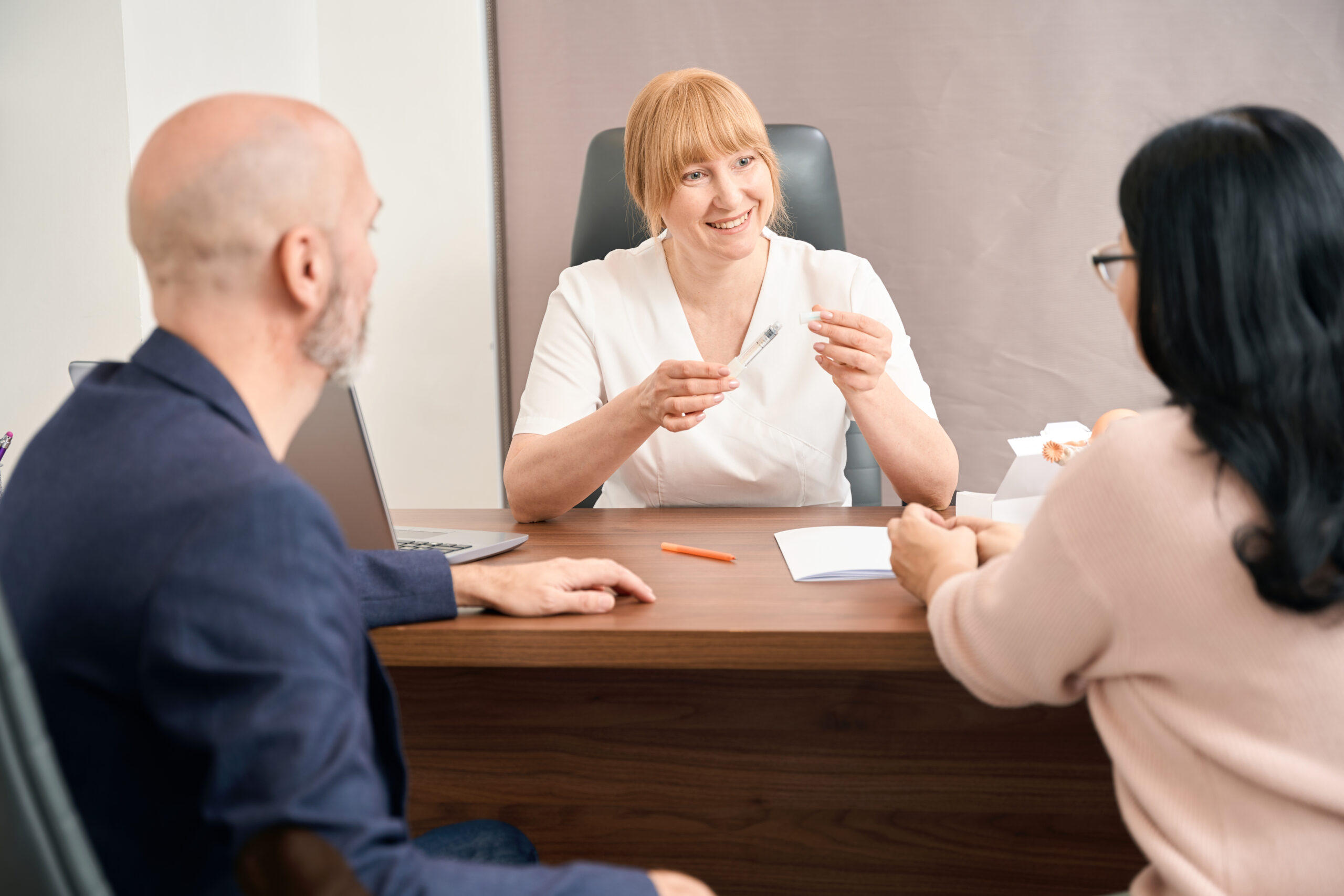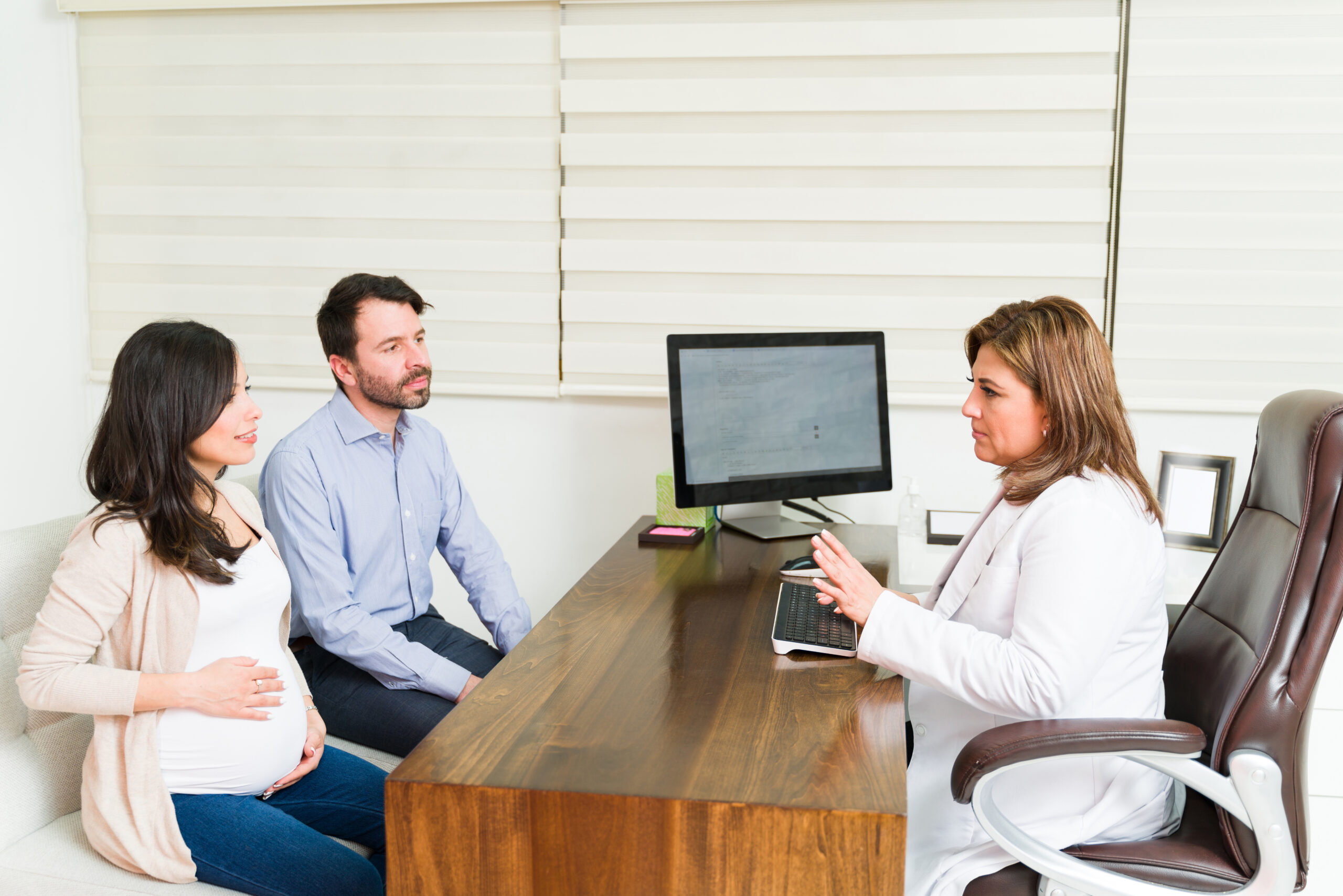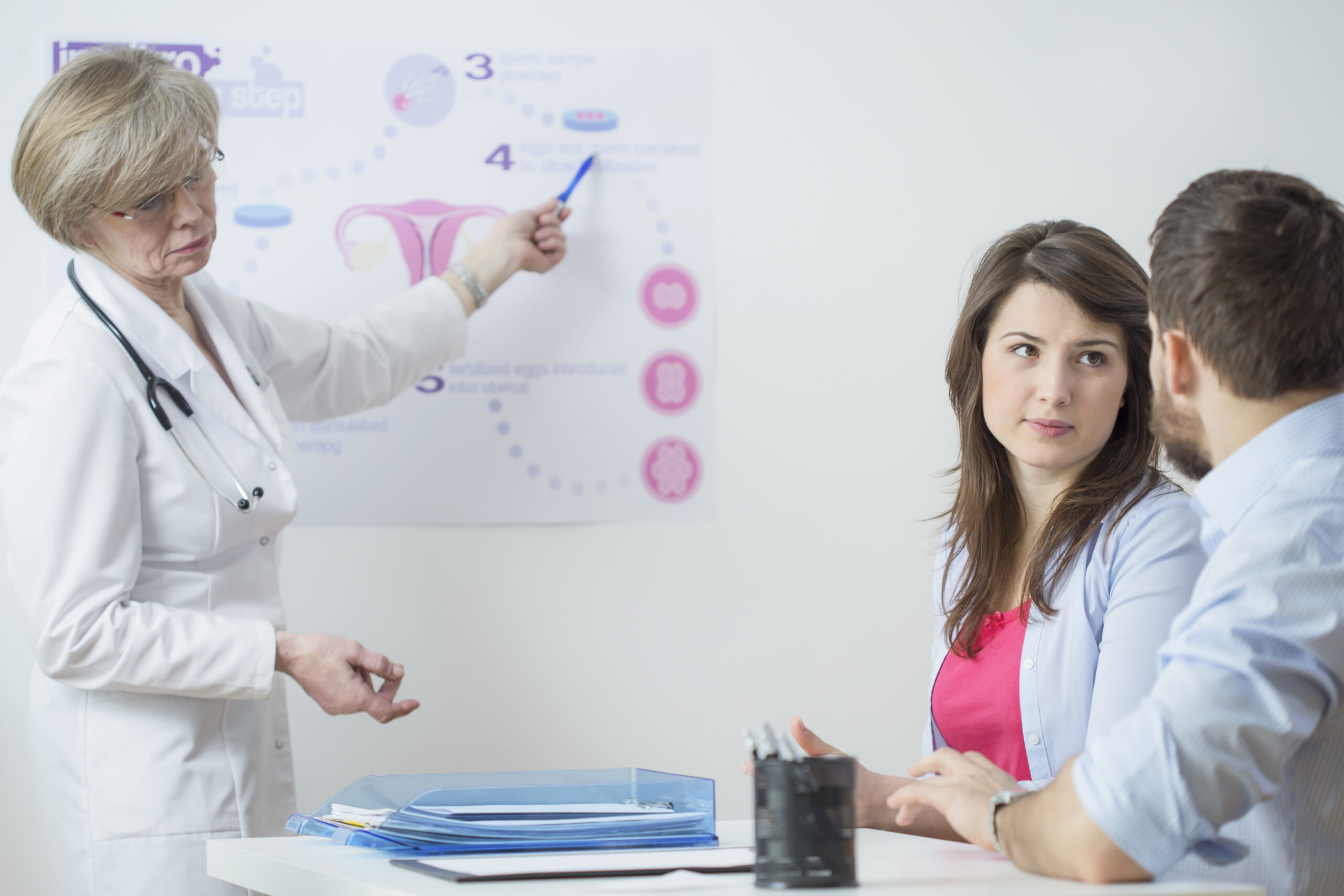What I want you to know is……
I care. I care about every element of your treatment. I care about the emotional support you receive from me and my team. Yes, I’m a Fertility Specialist and yes, I am a passionate scientist but above all….I am a father. It is National Infertility Awareness Week, led by Resolve, the US infertility charity and this year the theme is #whatiwantyoutoknow.
This a great conversation starter to raise awareness on the complex condition we call infertility. It means you as a patient can make your voice heard. You can share your frustrations and tell people what you want them to know. And for me as a Doctor, I can tell you what I think is really important for you to know.
My day starts at 6am when my four-year old and five-year old jump on my bed! They are my motivation. They cement my desire to help other couples experience the joy of parenthood. We always have breakfast together as a family. Each day is a new beginning filled with possibilities and opportunities. The children will play, learn, grow and develop new skills. It is a wonder to watch them discover the world and become more confident in themselves.
By 7am I leave for the clinic and my anticipation of the day ahead is very similar to my children. The science of assisted reproduction is constantly advancing. There is always more to learn in this area of medicine. There is new research, there are new techniques but above all there is excitement and hope that today’s patients will succeed.
At 7.30am I am in theatre with my first patient for egg retrieval. It is always an honour to be trusted with this delicate procedure. And to be able to tell them how many eggs they have warms my heart. I count myself lucky that I get to do a job I love every day! After egg retrievals, I will then perform surgical procedures to help patients manage certain conditions ultimately to improve their chances of pregnancy.
By 10am I am out of theatre and in the consulting rooms for ultrasound monitoring and following up with patients. Sadly, hope and disappointment go hand in hand and this is the downside of infertility. The hope is exciting but the disappointment is heart breaking. I want to be able to help every patient in my care. Every couple should have the opportunity to enjoy parenthood, but for some the road is going to be difficult. I am always open, honest and transparent with my patients. Some days I have to have difficult conversations and I feel their pain when I can’t deliver more positive news.
Essentially, I think the MOST important thing I want you to know is that maternal age plays a HUGE part in a successful outcome. Women are born with all of their eggs and this supply doesn’t get replenished like male sperm. Therefore, as women age, so do their eggs and the quality declines. After the age of 35 ovulation halves and achieving a pregnancy becomes more difficult.
After the age of 40, the ovarian reserve becomes depleted and egg quality is poor. In these cases, I would recommend using a donor egg from a younger woman. That is really hard for patients to hear and I will always try with the patient’s own eggs first to make sure we have explored all options.
Both the donor and the recipient receive counselling to ensure both parties are comfortable with the decision. I totally understand that patient’s need for time to digest this kind of news.
By noon I am at my desk grabbing lunch on the go, I use this time to hold a medical meeting with the team to review ongoing cycles and failed cycles. Again, failed cycles are devastating for the patient and the team.
Even after all these years working as a Fertility Specialist, I am still taken aback sometimes. There are some patients who are textbook and I am convinced the cycle is going to work.
But there is a positive for me as a clinician and that is a failed cycle is a good diagnostic tool. I can review the medication regime. With our embryologists we review the egg quality and embryo quality. Quite often a failed cycle means that tweaking the treatment plan results in a positive pregnancy test on the next round.
At 1pm I am back in theatre for embryo transfers, this always lifts my spirits as the hope and excitement kicks back in as we all hope and pray for implantation! After the embryo transfers, I finish my day in clinic with patient consultations both in person and over video call for US patients.
Something else that I think you should know is to get help sooner rather than later. A lot of my US patient consultations will have already had failed IUI and failed IVF in their home country.
If you don’t feel like you are getting personalised care or that your treatment regime doesn’t change from one cycle to the next, then call us! We treat many US patients successfully but could have saved them a lot of time and heartache if they had got in touch sooner.
I usually arrive home about 5.30pm and try to take some exercise, whether that be a walk or a run. Some quiet time to reflect on the day and think about individual cases and what we can do to improve a patient’s chances.
At 6.30pm I am reunited with my wife and children for dinner. The children excitedly tell me about their day and once again I am reminded why I am a Fertility Specialist. I know that families around the world are also enjoying this precious moment with their family too.
By 8pm I am tucking the children up in bed and reading them a bedtime story. The window of opportunity to cherish these children is limited, they grow up so quick and time goes so fast. The same is true for your window of opportunity to have children. The younger you are the better your chance of success.
By 10pm. It’s lights out for me too. Tomorrow is another day of hope and opportunity and I hope you will be a part of my tomorrow.
This a great conversation starter to raise awareness on the complex condition we call infertility. It means you as a patient can make your voice heard. You can share your frustrations and tell people what you want them to know. And for me as a Doctor, I can tell you what I think is really important for you to know.
My day starts at 6am when my four-year old and five-year old jump on my bed! They are my motivation. They cement my desire to help other couples experience the joy of parenthood. We always have breakfast together as a family. Each day is a new beginning filled with possibilities and opportunities. The children will play, learn, grow and develop new skills. It is a wonder to watch them discover the world and become more confident in themselves.
By 7am I leave for the clinic and my anticipation of the day ahead is very similar to my children. The science of assisted reproduction is constantly advancing. There is always more to learn in this area of medicine. There is new research, there are new techniques but above all there is excitement and hope that today’s patients will succeed.
At 7.30am I am in theatre with my first patient for egg retrieval. It is always an honour to be trusted with this delicate procedure. And to be able to tell them how many eggs they have warms my heart. I count myself lucky that I get to do a job I love every day! After egg retrievals, I will then perform surgical procedures to help patients manage certain conditions ultimately to improve their chances of pregnancy.
By 10am I am out of theatre and in the consulting rooms for ultrasound monitoring and following up with patients. Sadly, hope and disappointment go hand in hand and this is the downside of infertility. The hope is exciting but the disappointment is heart breaking. I want to be able to help every patient in my care. Every couple should have the opportunity to enjoy parenthood, but for some the road is going to be difficult. I am always open, honest and transparent with my patients. Some days I have to have difficult conversations and I feel their pain when I can’t deliver more positive news.
Essentially, I think the MOST important thing I want you to know is that maternal age plays a HUGE part in a successful outcome. Women are born with all of their eggs and this supply doesn’t get replenished like male sperm. Therefore, as women age, so do their eggs and the quality declines. After the age of 35 ovulation halves and achieving a pregnancy becomes more difficult.
After the age of 40, the ovarian reserve becomes depleted and egg quality is poor. In these cases, I would recommend using a donor egg from a younger woman. That is really hard for patients to hear and I will always try with the patient’s own eggs first to make sure we have explored all options.
Both the donor and the recipient receive counselling to ensure both parties are comfortable with the decision. I totally understand that patient’s need for time to digest this kind of news.
By noon I am at my desk grabbing lunch on the go, I use this time to hold a medical meeting with the team to review ongoing cycles and failed cycles. Again, failed cycles are devastating for the patient and the team.
Even after all these years working as a Fertility Specialist, I am still taken aback sometimes. There are some patients who are textbook and I am convinced the cycle is going to work.
But there is a positive for me as a clinician and that is a failed cycle is a good diagnostic tool. I can review the medication regime. With our embryologists we review the egg quality and embryo quality. Quite often a failed cycle means that tweaking the treatment plan results in a positive pregnancy test on the next round.
At 1pm I am back in theatre for embryo transfers, this always lifts my spirits as the hope and excitement kicks back in as we all hope and pray for implantation! After the embryo transfers, I finish my day in clinic with patient consultations both in person and over video call for US patients.
Something else that I think you should know is to get help sooner rather than later. A lot of my US patient consultations will have already had failed IUI and failed IVF in their home country.
If you don’t feel like you are getting personalised care or that your treatment regime doesn’t change from one cycle to the next, then call us! We treat many US patients successfully but could have saved them a lot of time and heartache if they had got in touch sooner.
I usually arrive home about 5.30pm and try to take some exercise, whether that be a walk or a run. Some quiet time to reflect on the day and think about individual cases and what we can do to improve a patient’s chances.
At 6.30pm I am reunited with my wife and children for dinner. The children excitedly tell me about their day and once again I am reminded why I am a Fertility Specialist. I know that families around the world are also enjoying this precious moment with their family too.
By 8pm I am tucking the children up in bed and reading them a bedtime story. The window of opportunity to cherish these children is limited, they grow up so quick and time goes so fast. The same is true for your window of opportunity to have children. The younger you are the better your chance of success.
By 10pm. It’s lights out for me too. Tomorrow is another day of hope and opportunity and I hope you will be a part of my tomorrow.
Today’s families come in a great variety of shapes and sizes. Whether it’s a mom and her partner or two moms, increased access to fertility treatment for social reasons has allowed women who do not have a medical cause of infertility to start a family and become single mothers.
